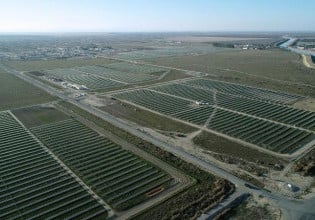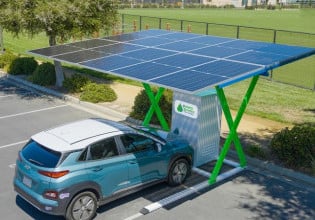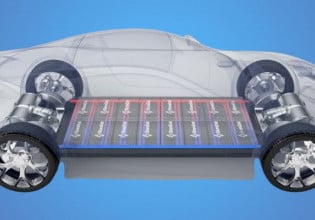Emcore Joins Team to Develop Very High Efficiency Solar Cells
EMCORE Corp. has signed a subcontract to participate in the Defense Research Projects Agency (DARPA) Very High Efficiency Solar Cell (VHSEC) program to more than double the efficiency of terrestrial solar cells within the next 50 months. EMCORE's Photovoltaic division was selected by the University of Delaware, the prime contractor for the DARPA VHSEC program, to develop advanced III-V multi-junction solar cells in Phase I of the program effort.
EMCORE is the only compound semiconductor manufacturer participating in the DARPA VHSEC program. In later phases, EMCORE expects to develop a technology roadmap for enabling significantly lower fabrication costs for the very high efficiency solar cells.
In connection with this subcontract award, EMCORE also has joined a consortium, formed by the University of Delaware (UD). The VHSEC program will provide up to $53 million in funding, which will be awarded to program participants in various phases over the next several years.
"EMCORE's core expertise includes the development and high-volume production of III-V compound semiconductor solar cells using gallium arsenide (GaAs) alloys and metal organic chemical vapor deposition (MOCVD) growth platforms. EMCORE will use this core expertise and technology base for the demonstration of very high efficiency, as a common theme in the transition to low cost fabrication," said David Danzilio, Vice President and General Manager of EMCORE's Photovoltaic division.
"In addition to leveraging the solar cell technologies that we have developed for space applications, we also will contribute our experience in deploying high efficient solar cells for terrestrial markets, where we are achieving excellent results in the concentrator solar power market with efficiencies currently topping 36%. The focus on higher efficiency and lower cost is of critical importance to DARPA, the VHSEC program sponsor, and will create new possibilities for our renewable energy product efforts," Danzilio concluded.
"The University of Delaware is pleased that EMCORE is part of the VHSEC consortium, and will bring its successful legacy of compound semiconductor solar cell technology development to this critical DARPA effort," Allen Barnett principal investigator and research professor in UD's Department of Electrical and Computer Engineering said. "A key part of this project also is making the transition from the laboratory to production and the marketplace. Because of the participation of Corp.s like EMCORE, which are already involved in solar product manufacturing, and because several team members, myself included, have experience in bringing high-technology products to market, we expect the VHSEC program to result in the development of practical and producible technology for these high value applications."






